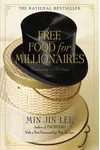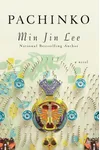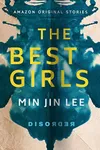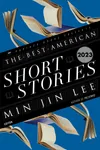Picture a Korean American storyteller who spun a multigenerational saga that captivated the world—meet Min Jin Lee! Born in Seoul in 1968, Lee immigrated to the United States at age seven, carrying dreams that would one day fill the pages of her acclaimed novels. With works like Free Food for Millionaires and Pachinko, she’s become a literary beacon, weaving tales of identity, diaspora, and resilience that resonate across cultures.
Lee’s storytelling is a bridge between worlds, drawing from her own journey as an immigrant in Queens, New York. Her novels don’t just entertain—they invite readers to explore the complexities of Korean American life with heart and nuance. Ready to dive into her world? Let’s explore the life, works, and impact of this remarkable author.
The Making of Min Jin Lee
Born in Seoul, South Korea, Min Jin Lee moved to Elmhurst, Queens, in 1976, where her parents ran a wholesale jewelry store. Growing up, she devoured books at the Queens Public Library, finding solace in stories of American individualism and Korean quests for knowledge. A shy child, Lee never imagined writing novels—she initially dreamed of architecture or political journalism. At Yale, she studied history, winning prizes for fiction and nonfiction, but a writing career seemed out of reach for someone from her background.
After earning a law degree from Georgetown and working as a corporate lawyer, Lee’s chronic liver disease and grueling work hours prompted a bold pivot. In 1995, she left law to pursue writing, a decision fueled by a desire to tell the stories of the “disgraced, poor, and earnest strivers” of Queens. Her journey from immigrant daughter to celebrated author is a testament to perseverance, shaped by her deep connection to her Korean roots and American dreams.
Min Jin Lee’s Unforgettable Stories
Lee’s debut novel, Free Food for Millionaires (2007), follows Casey Han, a Korean American navigating love, ambition, and class in New York City. Praised for its sharp-eyed take on intergenerational strife and social mobility, it landed on top-10 lists for NPR’s Fresh Air, The Times of London, and USA Today. Its vibrant characters and incisive wit introduced Lee as a bold new voice in literary fiction.
Her second novel, Pachinko (2017), is a sweeping epic tracing four generations of a Korean family in Japan during the 20th century. Inspired by interviews with Korean-Japanese communities, it explores themes of exile, discrimination, and survival. A finalist for the National Book Award and named one of the New York Times’ 100 Best Books of the 21st Century, Pachinko has been adapted into an acclaimed Apple TV+ series. Lee’s meticulous research and omniscient narrative style bring history to life, making her novels both intimate and universal.
Currently, Lee is crafting American Hagwon, the final installment of her Korean diaspora trilogy, focusing on education’s role in Korean communities worldwide. Her essays, appearing in The New York Times, Vogue, and Travel + Leisure, further showcase her versatility, blending cultural insight with personal reflection.
Why Min Jin Lee Matters
Min Jin Lee’s work transcends borders, offering a lens into the Korean diaspora’s triumphs and struggles. Her novels challenge readers to confront issues of race, class, and identity while celebrating the resilience of ordinary people. Honors like the Manhae Grand Prize for Literature (2022) and the Fitzgerald Prize for Literary Excellence (2024) reflect her global impact. As a Guggenheim Fellow and Writer-in-Residence at Amherst College, she inspires new generations to tell their own stories.
Lee’s influence extends beyond literature—she’s a cultural ambassador, fostering empathy through her vivid characters and unflinching honesty. Her ability to make history feel personal has earned her a devoted readership and critical acclaim, proving that stories of marginalized communities can resonate universally.
About Min Jin Lee
- Birth Date: November 11, 1968, in Seoul, South Korea
- Key Works: Free Food for Millionaires (2007), Pachinko (2017)
- Awards: Manhae Grand Prize for Literature (2022), Fitzgerald Prize for Literary Excellence (2024)
- Fun Fact: Lee reads a chapter of the Bible daily before writing, inspired by Willa Cather.
Snag Pachinko or Free Food for Millionaires and dive into Min Jin Lee’s soulful, history-rich world! Her stories will leave you laughing, crying, and hungry for more.



